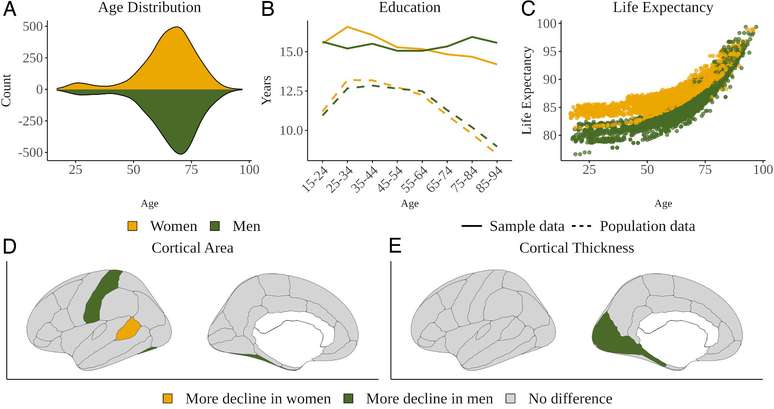Understand the importance of pediatric nutrition and discover healthy eating tips, nutritious recipes, and vital habits that can help children grow up healthy.
Understand the importance of pediatric nutrition: Nutrition plays a vital role in the development and well-being of children and adolescents. Proper nutrition in childhood not only helps build the foundation for a healthy life, but can also positively influence eating habits. Throughout life, the body goes through several stages. Between them there is a period of intense growth and development that needs allies, such as nutrition. It is a key part of the success of this process. In this article, we will explore the importance of pediatric nutrition, providing healthy eating tips, nutritious recipes, and vital habits that can help children grow up healthy. Let’s go?
What is the importance of pediatric nutrition?
Nutritional pediatrics is a medical discipline dedicated to the study and treatment of infant nutrition. The aim is to ensure that children get the nutrients they need for healthy growth and development. Infancy is a critical stage for physical and cognitive development and nutrition plays a crucial role in this process. Nutritional errors at this stage can have long-term implications for learning and intellectual development. Furthermore, nutritional pediatrics is essential in the prevention and treatment of common health problems in childhood, such as childhood obesity, nutritional deficiencies and eating disorders.
html[data-range=”xlarge”] figure image img.img-e09397559afd48b4873751b60d41ff51ls0r18ub { width: 774px; height: 526px; }HTML[data-range=”large”] figure image img.img-e09397559afd48b4873751b60d41ff51ls0r18ub { width: 548px; height: 373px; }HTML[data-range=”small”] figure image img.img-e09397559afd48b4873751b60d41ff51ls0r18ub, html[data-range=”medium”] figure image img.img-e09397559afd48b4873751b60d41ff51ls0r18ub { width: 564px; height: 384px; }HTML[data-range=”small”] .article__image-embed, html[data-range=”medium”] .article__image-embed {width: 564px; margin: auto 0 30px; }
What are essential nutrients for babies?
Babies need a variety of nutrients to grow and develop properly. However, each person may have different needs. For this reason it is essential to have the follow-up of a qualified professional. But overall, here are some of the key nutrients for a balanced diet:
Protein
Protein plays an essential role in the growth and development of children and adolescents. They are involved in a wide variety of vital functions, from developing muscles and bones to strengthening the immune system. Furthermore, proteins act as nutrient transporters, regulators of chemical reactions, and satiety promoters, playing a crucial role in maintaining a child’s health.
carbohydrates
Carbohydrates play a crucial role in children’s diets, being the main source of energy for growing children and adolescents. These nutrients provide the necessary fuel for play, physical activity and metabolic processes occurring in the children’s body. They also play a vital role in brain health as they are the main source of glucose, which is the preferred fuel for a developing brain. Therefore, it is essential to ensure that children are provided with complex carbohydrates such as whole grains, fruits and vegetables.
vitamins and minerals
Vitamins and minerals play a vital role in the development of children’s immune, bone and circulatory systems. Ensuring a diet rich in these nutrients is essential to support the growth and health of children. However, for any vitamin or mineral intake, it is important to consult a health professional or nutritionist. Do not start child integration before knowing the real needs of that child.
fibers
Fiber contributes to children’s gastrointestinal health and well-being. They promote healthy digestion, preventing intestinal problems such as constipation, making it easier to transit through the region. Additionally, fiber regulates blood sugar levels, helping to control blood sugar and helping to prevent sugar spikes after meals. Including foods rich in fiber, such as fruits, vegetables, legumes and whole grains, in children’s diets is essential.
Healthy fats
Healthy fats are essential for brain development, being a key component of the cell membranes of the central nervous system. Additionally, healthy fats play a significant role in the absorption of fat-soluble vitamins. Sources of healthy fats include avocados, nuts, seeds, olive oil and fatty fish like salmon.
What are the best healthy eating tips for kids?
Promoting healthy eating for children can be challenging, especially in a world full of processed and high-calorie foods. Here are some tips to help parents instill healthy eating habits in their children:
- Lead by example: Children often imitate the adults around them. Therefore, it is vital that parents adopt healthy eating habits, demonstrating the value of a balanced diet.
- Include diversity: offer a variety of foods to ensure your child gets all the nutrients they need;
- Avoid processed and sugary foods: Limit your consumption of processed foods. Opt for healthier alternatives such as fresh fruit, natural yogurt and homemade snacks;
- Maintain a regular eating schedule: this attitude helps children develop healthy eating habits and avoid excessive snacking between meals;
- Involving children in preparation: This can increase their interest in food and encourage them to try new foods.
Check out 5 healthy food combinations you can include in your diet
An effective way to promote healthy eating for children is to prepare nutritious homemade meals and avoid industrialized ones. Here are some recipes that combine flavor and nutritional value:
1. Turkey Avocado Sandwich
This sandwich is a great source of protein and healthy fats. Use whole grain bread, lean turkey, avocado, lettuce and tomato to create a delicious lunch.
2. Chicken and vegetable wrap
Wrap the grilled chicken pieces, shredded carrots, cucumber and lettuce in a whole wheat tortilla. Add the herb yogurt dip for a kick of flavor.
3. Fruit and spinach smoothie
Make a nutrient-packed smoothie by blending fresh spinach, banana, strawberries, and plain yogurt. Sweeten with a little honey if needed. You can also freeze berries for a creamier drink.
4. Whole wheat mini pizza
Create healthy mini pizzas using wholemeal bread or even homemade dough as a base. Complete with tomato sauce, cheese and colorful vegetables.
5. Oatmeal Banana Muffins
Make Oatmeal Banana Muffins with just two ingredients: oatmeal and ripe bananas. They are a healthy alternative to processed sweets and snacks. There are habits that must be cultivated from the first years of life so that this reflects on the health of the child and the future adult. Among the main ones are: hydration, physical activity, adequate sleep, limitation of screens and personal hygiene, for example. As parents and guardians, it is our duty to provide the tools necessary for children to cultivate positive eating habits from an early age, so they are prepared for a healthy and vibrant adult life.
Source: Terra
Ben Stock is a lifestyle journalist and author at Gossipify. He writes about topics such as health, wellness, travel, food and home decor. He provides practical advice and inspiration to improve well-being, keeps readers up to date with latest lifestyle news and trends, known for his engaging writing style, in-depth analysis and unique perspectives.





![Tomorrow belongs to us: What awaits you in the episodes of 2052 and 2053 on October 15, 2025 [SPOILERS] Tomorrow belongs to us: What awaits you in the episodes of 2052 and 2053 on October 15, 2025 [SPOILERS]](https://fr.web.img6.acsta.net/img/39/95/3995a2d00abbf3c01161818d01a95388.jpg)



